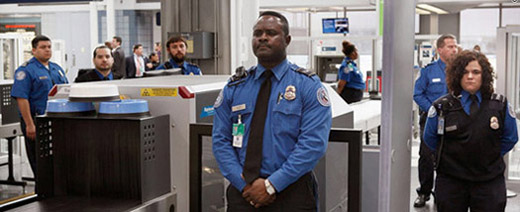Airport Body Scanners Could Be Hazardous
 The increasing globalization that allows relatively easy international travel has produced some unintended consequences. Terrorist attacks and threats are now at a high due to the shrinking world, driving up the need for tighter airport security. Extensive background checks are now typically needed to obtain a passport, and certain individuals who are traveling or have traveled to certain countries undergo greater scrutiny before they may be allowed to board a plane. Another way that airports are combating terrorism is by using a full body x ray machine. But these machines may expose travelers to hazardous health conditions, doing far more harm than good.
The increasing globalization that allows relatively easy international travel has produced some unintended consequences. Terrorist attacks and threats are now at a high due to the shrinking world, driving up the need for tighter airport security. Extensive background checks are now typically needed to obtain a passport, and certain individuals who are traveling or have traveled to certain countries undergo greater scrutiny before they may be allowed to board a plane. Another way that airports are combating terrorism is by using a full body x ray machine. But these machines may expose travelers to hazardous health conditions, doing far more harm than good.
Traditional metal detectors are now seeing competition with full body scanners. The full body scanners are a step above metal detectors. They allow the airport security staff to pore over every inch of skin on a traveler to search for potential weapons, and even reveal weapons that are not made out of metal, such as plastic guns, bombs, or knives, something that traditional metal detectors cannot do. But the full body scanner also uses x ray technology, which can have adverse side effects on travelers.
Overexposure to radiation is a dangerous thing, even if that radiation is coming from an x ray machine. It can increase the chances of cancer due to the amount of radiation involved in creating an x ray image, which is why patients are discouraged from taking too many. The body scanning x ray machines used at airports to tighten up airport security emit a low dose of radiation to scan the surface of the skin for potential weapons – and this radiation can increase travelers’ chances of getting skin cancer. This is because the beam of radiation would be concentrated on the skin, which is one of the most radiation-sensitive organs of the human body, according to an article published in The Daily Mail. The body scanner’s adverse effects can be even more prevalent in young children and those with gene mutations.
Travelers who fly often, such as those who partake in regular business trips, are at even greater risk of developing skin cancer due to their repeated exposure to the body scanners. In the United States alone, at least 11 major airports now use the full body scanners to screen passengers for weapons before they may pass into the secured portion of the airport, according to USA Today. However, for now, traditional metal detectors and a physical hands-on pat-down will still be an option for travelers who do not like the idea of going through a full body scanner. Though chances are the technology of full body scanners is not harmful enough to be of real concern, it is something that should be kept in mind.
Did you enjoy this article?

